(SKUPLJAČI PERJA)
“My lord, if you reincarnate me again after death,
Let me be Gypsy.
Let me choose one of the ways
The way of joy that will make me a happy man
Or the way of death and a new encounter with you.”
Aleksandar Petrovic
| Production: | Avala film, Beograd 1967 |
| Screenplay: | Aleksandar Petrović |
| Director: | Aleksandar Petrović |
| Set Design: | Veljko Despotović |
| Cinematography: | Tomislav Pinter |
| Art Director: | Nikola Rajić |
| Producer: | Vladislav Lašić |
| Choice of music: | Aleksandar Petrović |
| Music: | “Rino” (Olivera Vučo) “Niška Banja” (Olivera Vučo) “Nu, Nu” (Olivera Vučo) “Đelem, Đelem” (Olivera Vučo) |
| Cast: | Bekim Fehmiu, Olivera Vučo, Velimir Bata Živojinović, Gordana Jovanović, Mija Aleksić, Rahela Ferari, Severin Bijelić, Etelka Filipovski, Milorad Jovanović, Milivoje Đorđević |
Gallery:
Press Book Avala Film 1967.
“The film I Even Met Happy Gypsies will show you the life of Roma as it is.
This film is not romantic – it is raw and beautiful, as is the life of Romas.
The songs you will hear in this film, you will hear for the first time, because they are the songs of Roma people from Vojvodina, rarely known.
In their life, reality is linked to fantasy – these are free people…
I Even Met Happy Gypsies is the first film in which Roma speak their own language.
The majority of these roles are played by real Roma – they do not play in this film, it is their film. They play out, so to speak, their own destiny. » Aleksandar Petrović
Experience has taught me not to believe in films with so-called “messages”; that is probably why my latest film “I Even Met Happy Gypsies” stays for me a simple piece of life. After we are done watching it, as it always happens in life, we are overpowered by a heap of associations, a special and imaginative polyphonous constellation of the life of Vojvodina Roma – the feather gatherers. What is essential to all that?
I think it best that everyone decides for themselves what their own message is, once they have faced the film. Personally, as the film’s first spectator, it would be a nightmare of fantasy and reality for my heroes – the Roma that have lived there for centuries. And that is certainly why I chose them as a subject for this film. These people live a life of art; their tragic and desperately incomplete attitude towards life is the same as the relationship between art and life!
By being on the outskirts of society, incomplete, constantly searching for something, they are close to the absolute! And right next to them is the mystery of death which creates for these feather gatherers a specific relationship towards religion; they are neither religious nor secular. To these unreachable pagans, religion is similar to the rest – a part of life: grand and horrible, tender and bitter, charming and revengeful, free and luring, exactly the way this film wants to show it.
Aleksandar Petrović
Plot Summary:
This film, extremely lyrical, tells the tale of the Roma man named Bora (Bekim Fehmiu), the feather-gatherer. Married to a woman much older than he, as is common with Romas, he is often away from their household full of children, ceaseless noise, and constant fighting. On his way to work, he meets a pretty young woman, Tissa. Savage and wandering, she also avoids her home and her step-father Mirta who is brutal and aggressive. Bora and Mirta are rivals at work as much as they are with Tissa. To gather feathers, they split the villages and are both careful not to run into each other. Neither can stay away from Tissa.
Mirta arranges to marry Tissa off to a twelve-year-old boy, hoping that she will therefore stay his. Tissa rejects the young boy and throws him out of the house. After many complications and difficulties, Bora is finally able to free Tissa from her stepfather’s grip. A monk named Paul marries Bora and Tissa in a small monastery. Tissa starts living with Bora’s family as he continues his travels. This life is not enough for Tissa and is not what she expected; she runs away to Belgrade. She hopes to become a singer in a café but she is left with only two choices: either she sings in the streets or she starts selling her body. Fed up with everything, Tissa goes back to Mirta’s house. When Bora finds out, he rushes to Mirta’s home and kills him, throwing his body in the river. The death of a Roma person doesn’t mean much and no one will question or investigate anything. Months pass and spring arrives. Bora has spent a calm winter in the comfort of his home. However, once the ice melts, Mirta’s body is found and an investigation begins. Bora leaves his house and disappears into the expansive plains, whose cruelty makes them that much more beautiful.
“As a child, I observed these people and found in them faith and irrationality.” Alexandre Petrović. “Without this moment of irrationality, there is no work, there is no art.”
About the song Djelem Djelem:
Already in 1964, during the filming of his short-film Record, Aleksandar Petrovic heard the song Djelem Djelem played by a Hungarian family of musicians, Lakatoch, and used it in the soundtrack for his film. Djelem Djelem found huge success with I Even Met Happy Gypsies and in very little time, the Romas adopted it as their anthem. Until the end of his life, when Petrovic would enter one of the many cafés or restaurants in Yugoslavia where Roma orchestras would play, he would be recognized and the orchestra would immediately play Djelem Djelem.
Olivera Vuco, who had the role of the café singer who would sing the song, is an actress and professional singer who impressed Bruno Cocatrix, who invited her to sing at the Olympia in Paris. She held that spot for 72 days and wowed the press!
Improvisation of the famous Gyspy musician Chandor Lakatoch Djelem, Djelem:
I have roamed down many paths
Many paths, long paths.
They beat my father, oh my mother.
They threw me in cold water.
Oh mother, what have you done with me?
You left your children as orphans,
Two have died, one roams with no end.
Oh mother, what have you done?
You left me alone on the roads,
Pity me, mother.
I have roamed down many paths.
I even met happy gypsies.
Aleksandar Saša Petrović, Bekim Fehmiju I Olivera Vučo snimaju “Skupljače perja” (1967)
Yugopapir PDF
Video Gallery:
Awards, honors, festivals:
|
In 1979, in a survey conducted by the Yugoslav Film Institute, I Even Met Happy Gypsies was named the Best Film in the history of Yugoslav Cinema, with his film Three in second place.
Press excerpts:
“Aleksandar Petrovic’s chef-d’oeuvre is the most beautiful hommage to the freedom of personality.” LE COMBAT –Henri Chapier
“I Even Met Happy Gypsies by Aleksandar Petrovic – a Rimbaud-like beauty, convulsive and inimaginable; an electrifying beauty, made of thunder and a burning sun, of a chaotic life, of truth, of songs, of dance, of captivating characters, of roaring laughs, of a delicate insanity, of a furious one; fabulous beauty of this film, beauty of our art, of our passion.” LES NOUVELLES LITTERAIRES – Pierre Ajame
“… a grand and beautiful film, poetic, melancholic, warm, tender, strong. I apologize for this list of epitets, but I would be able to add twenty more. Precise with its tone and details, and magnificiently true. Petrovic has understood the spirit of Gypsies.” “LE NOUVEAU CANDIDE – Michel Aubriant
“It’s a rich history inspired by life, that gives the audience the liberty to draw their own conclusions.” There are no “messages”, exaggerations of folklore, or ethical problems. The fight in the pile of feathers, the gypsy songs, a brutal love, the wedding officiated by an orthodox priest, daily life, work and its distractions, anxieties and freedom where we forget everything, are all combined in this natural film that does not fabricate customs, does not dictate reforms and doesn’t judge society. Petrovic’s new film reinforces his excellent reputation as a director who reigns entirely on his themes.”…“this entry should be around come prize time at the presently unrolling Cannes Film Festival” VARIETY –Gene Moskowitz
“The Yugoslav film by Aleksandar Petrovic, I Even Met Happy Gypsies, is an incredible film with characters who possess an original force and power of expression, that we rarely meet in a film.” LIBERCKER NACHRICHEN – Gunther Menten
“It’s a sumptuous film, baroque, unpredictable, heart-wrenching, ironic. But it isn’t just a spectacle because Petrovic is a moralist who knows not only how to quiet his anxieties but also how to understand them and to make us love. If there is a POSTULAT, it is one of physical and spiritual liberty, like a huge broken glass; like a dream.” CINEMA –Gilbert Guez
“… The violent bursts of color, the shots of old wrinkled women smoking cigars, the explosion of dance and song when the night falls on the drowning landscape, the full taverns, the public and private screaming quarrels, the vividness of an old monk who sells the sheets of his mattress, the crazy and stubborn flock of geese amongst the multicolor symphony of cottages, here is the poetry of appearances. Petrovic’s biases, if there really is really a bias, is in his way of capturing certain faces “in flight”, certain attitudes that we find. Trying to surprise a man at the peak of his efforts, of his cruelty, a woman at the peak of her dismay, of her destress, attempting to combine the rhythm of a dispute, the crescendo of a fight, this is the goal that is searched for. Petrovic hasn’t cheater: a no point does the audience feel like a voyeur. The material success hasn’t killed the life of this film: he has therefore won.” JEUNE CINEMA –Jean-Loup Passek
Have you ever listened to what people were saying in front of movie theaters after having seen your film?
“Yes, and I have to tell you that when it comes to I even met happy gypsies, that is the best kind of critique.” VJESNIK U SRIJEDU (Croatian newspaper)
CER – CENTRE EUROPE REVIEW Dignity in Diversity Jaes Patrige
About Gypsies:
In the Yugoslavian part of the vastest plain in Europe, the Pannonian plain, there is a bizarre conglomeration of nationalities and religions. Amongst the Serbs, the Romanians, the Hungarians, and the Slovakians live many Gypsies. We don’t exactly know how many there are because they live outside of the borders of the social and ethical laws of the environment that surrounds them. Their integration into society is their personal problem as well as the problem of society itself. We can say that they are more and more aware of their situation, which makes their problem even more relevant.
Alexander Petrovic has chosen to “paint” the lives of Gypsies in Vojvodina with a rich palette of colors (it is his first film in Technicolor). It is the first film in which the problem of the existence of Gypsies in society and in life is discussed. It is the first film in which Gypsies speak their language. The majority of the actors are real Gypsies. It is their film.
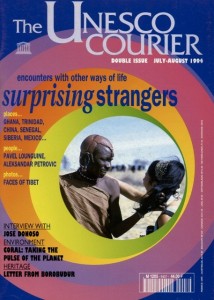 “Less attached to their personal interest compared to others, or less “rational”, because they scorn considering the long-term consequences of their actions, Gypsies seem to me more sensitive to the beauty of the world and its suffering, and they are more dedicated to misery because they are more vulnerable to the temptation of the “bad” –if we must call it so- that each of us holds in ourselves.” Alexandre Petrovic Le Courrier de l’Unesco, entretien 1994.
“Less attached to their personal interest compared to others, or less “rational”, because they scorn considering the long-term consequences of their actions, Gypsies seem to me more sensitive to the beauty of the world and its suffering, and they are more dedicated to misery because they are more vulnerable to the temptation of the “bad” –if we must call it so- that each of us holds in ourselves.” Alexandre Petrovic Le Courrier de l’Unesco, entretien 1994.
“The life of these people is exceptionally interesting and bizarre; it incarnates a lot of the worries that we all combat; but that, in most cases, I would say, we live out in a more meditative way, locking them up and choking them with all sorts of psychological and social censures. Them, they put these worries at the same level as life – what we think and dream, they live and they realize.” A.P.
“Gypsies love of colors is closely related to their very developped love of the fantastic and the surreal. That is why, if you feel the fantastical in this film, you should not think that it is invented and unreal – no, this is a realist film, whose limits of realism have moved along with life, which is the main subject of this film.” A.P.
“While still a child, I was concious of the impossibility to explain infinity and eternity. Nonetheless, no one forbade me to feel this infinity and eternity, and I will not allow anyone to take away my right to feel irrationality. Ever since I have developed in me a need for irrationality and this feeling has culminated in I even met happy gypsies; if this film is the way it is, it is because these people touch irrationality from their heads.” (SACHA PETROVIC INDOMPTABLE MAITRE biography of Alexandre Petrovic by Boro Draskovic).
Roms in the film, Roms in Yugoslavia:
In the film “I Even Met Happy Gipsies”, about ten primary and secondary roles are portrayed by actual Gypsies, prsenting their own way of life. That goes for the young Gordand Jovanovic, a sixteen-year-old illiterate girl who plays the part of Tisa. The other parts are played by Milorad Jovanovic, Etelka Filipovsk, Nina Sajin, Velizar Petrovic and Milivoje Djordjevic.
The number of Gypsies in Yugoslavia has never been established exactly but it is estimated that there are 300 000. They live in all parts of the country but mostly in the northeast. They are connected with Romanian, Hungarian, and Russian Gypsies, varying greatly in social, religious and linguistic elements. They practice the most various and strange activities, and in Vojvodina, the Yugoslav territory where the action of the film takes place, many of them buy and re-sell feathers. Their social and economic situations offer a very controversial picture. Without a determined social status, they live day by day.
This is the first film that treats the problems of their existence in society and in life. The largest part of the film is in the Romani language.
The Gypsy culture has no written traces. Their origin is lost in the darkness of history. Without an alphabet of their own, without history, they are a riddle that no one has ever tried to solve seriously. This film has no aspirations to do so. It only tries to show that the riddle of the Gypsy fate has very much in common with the fate of man and poetry.
Almost nothing in this film is invented; its action was based on authentic data.
Aleksandar Petrovic about I Even Met Happy Gypsies:
“The experience has taught me not to believe films that have what we call “messages”: that is why my last film I even met happy gypsies, after it is finished, personally does not tell me anything definite. For me, it is only a little bit of life, then, as in life itself, from this footage, we will be seized with all sorts of associations, a special and imagined understanding of the lives of the Gypsies from Vojvodina – the feather gatherers. What is at the basis of all of this?
It is better for each of us to decide that as we watch the film. As far as I am concerned, as the film’s first spectator, it would be the nightmare of the dream and the reality in which my heroes, Gypsies, have constantly lived in for centuries; and that is certainly why I have chosen this theme. These men live in a life of art, their tragic and indefinite/unfinished attitude towards life is similar to the attitude of – the arts and life itself! Because, at the margins of society, always on the search for something, they touch the absolute! And right away, right next to them appears the mystery of death that, for these feather gatherers, is at the origin of their special attitude towards religion; they are neither for nor against religion. For Gypsties, religion is like the rest – a par of life: majestic and terrifying, sweet and sour, seductive and vindictive, free and intoxicating, as this film wants to show it.”
Aleksandar Petrovic in front of the press at the film’s premiere.
Do you know what Gypsies think of your film?
VJESNIK U SRIJEDU (croatian newspaper)
“I wanted to talk to you about this! The second or third day of projecting, at the “Slavija” cinemas in Belgrade, after the movie, I noticed a group of young gypsies that were leaving the projection room. Since they were Gypsies and young, I absolutely wanted their opinion. I asked them:
Guys, is it worth seeing this film? They answered: It’s good, really good. It deserves awards.” A.P.
Anecdotes:
Aleksandar Petrovic liked to say that he was unlucky.
During the Oscars ceremony, Aleksandar Petrovic was at the table with other film personalities, notably Gregory Peck, President of the Academy Awards, and his wife. As the Oscar for Best Foreign Film for the year 1967 (in 1968) was being announced, he heard: “and the Oscar goes to Aleksandar Petrovic for Closely Watched Trains (Tchecoslovakia).” He stood up at the same time as Jiri Menzel, the director of this film to go to the podium. There was a confusion becauseI even met happy Gypsies wasn’t announced. The presenter expressed his humiliation and his excuses for his mistake. It was in fact Jiri Menzel who received the Oscar. Tchecoslovakia had just been occupied by the Russians. Gregory Peck explained to Petroic that the list of winners had been decided for a while, and that he should have won the Oscar but the foreign policy was more important than film. P. Volk: “Let nad mocvarom” p. 194
Petrovic’s words:
There are no lies in art. Art knows only the truth. We are not judges, nor prophets nor propagandists. Aleksandar Petrovic
If we do not love man, we cannot make films. Aleksandar Petrovic
In response to a journalists question:
What is the key to good cinematography?
Petrovic responded:
Talent… and good conditions for its developpement.



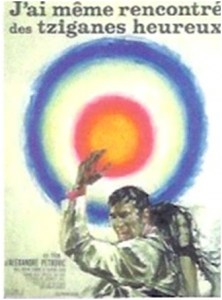
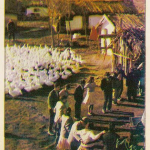

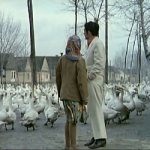
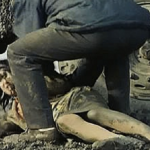
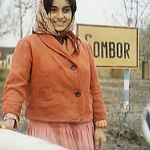

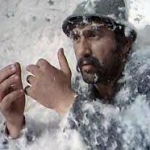
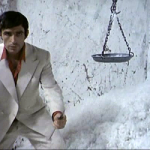
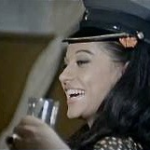
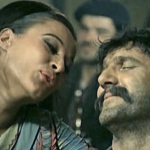

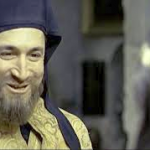
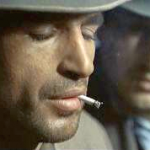
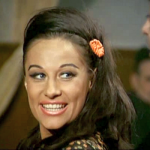
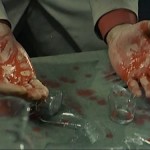
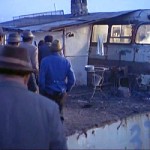
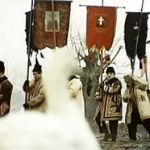
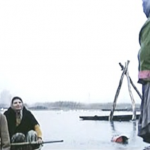
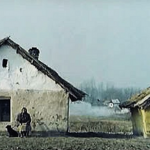
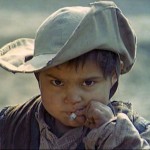
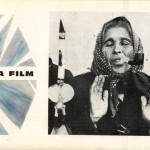
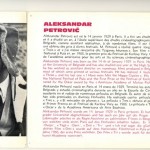
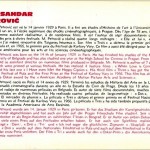
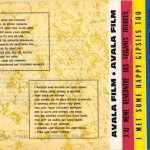
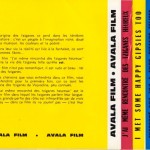

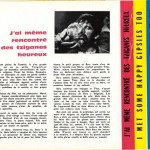
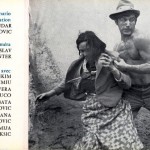
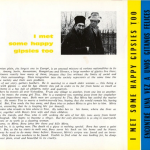
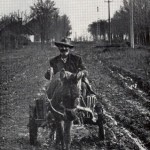
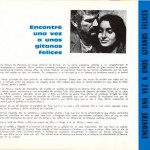
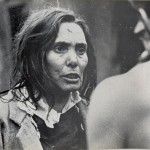
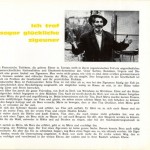

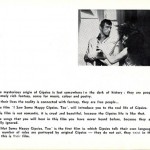
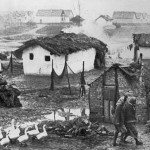
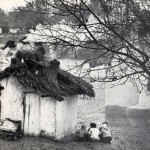
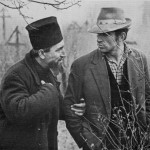
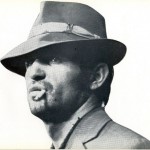
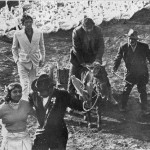
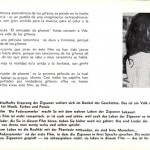


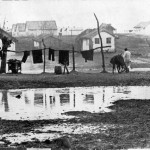
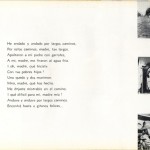
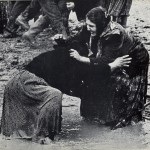
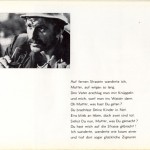
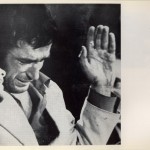
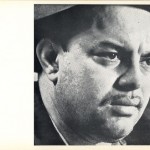

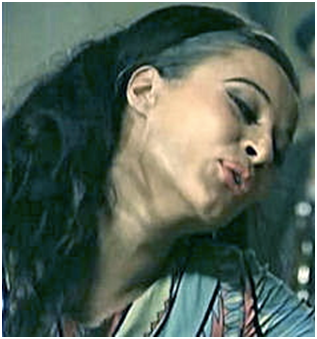
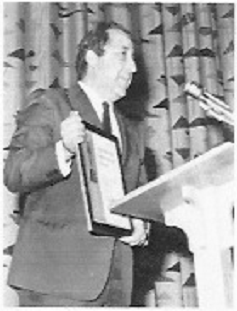
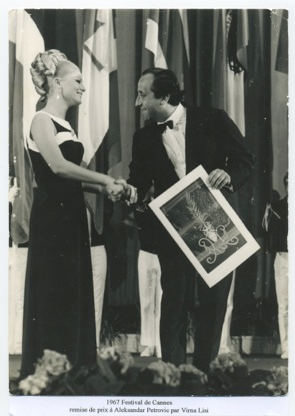
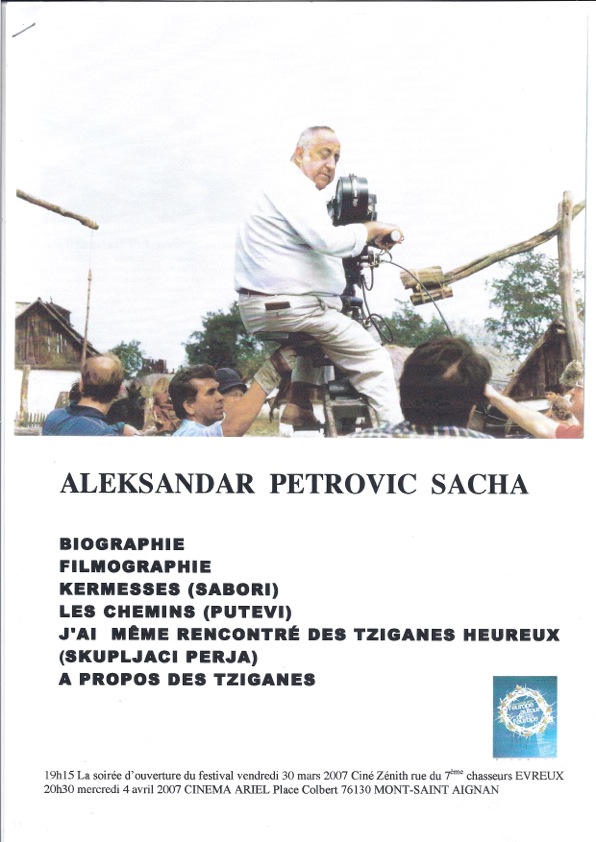
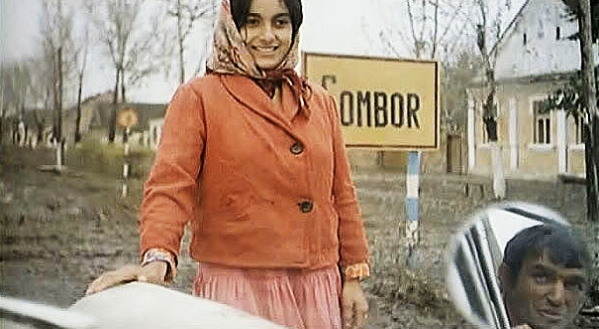
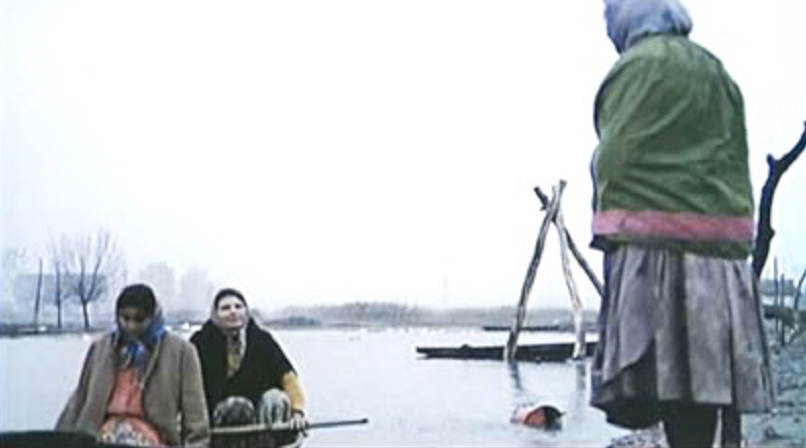
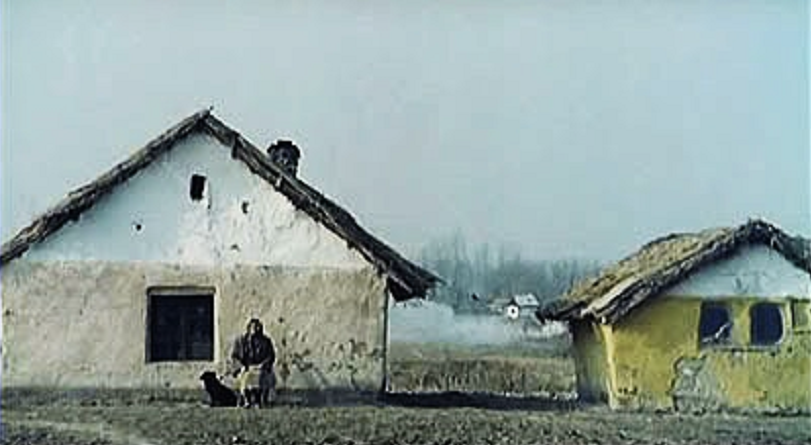
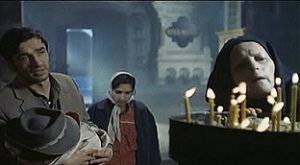
Leave a Reply
You must be logged in to post a comment.